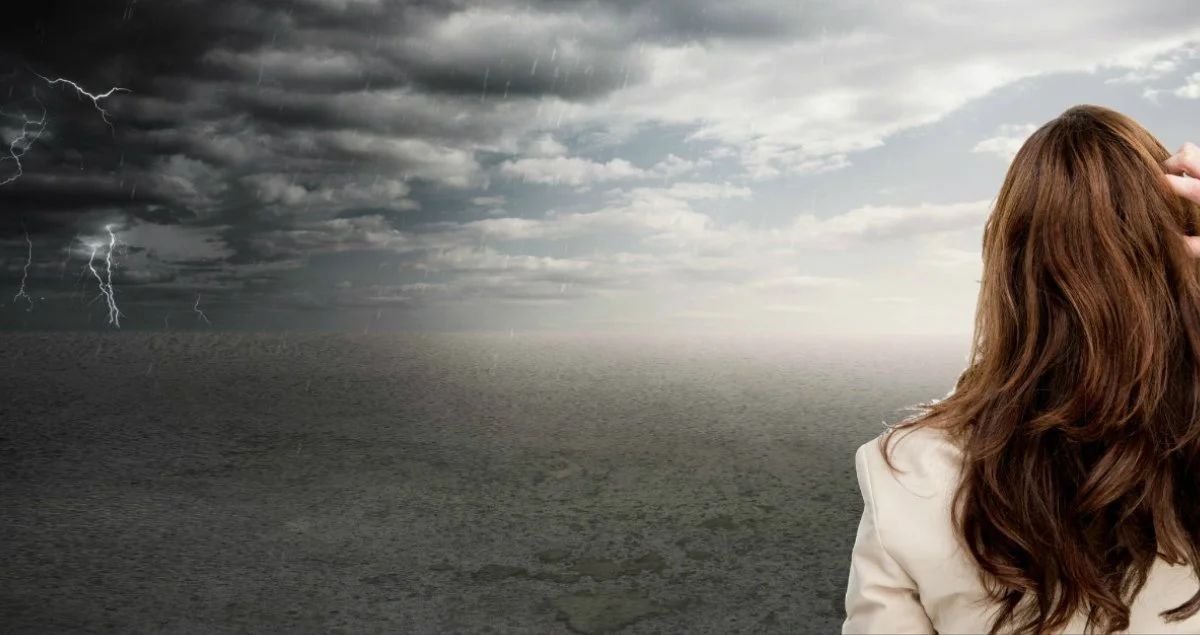What the Old Testament Prophets Say to Us During This Election Season: 4 Thoughts
One evening in March 1998 when my son Joshua was 5, he called his mom to his room. Already tucked in bed, he asked Pat a question.
Joshua: What was Elisha?
Pat: A prophet.
Joshua: I want to be a prophet.
Pat: What made you think that?
Joshua: I really believe in Jesus and I want to tell people about Jesus.
They talked about this a bit more and then kissed each other goodnight.
About a week later we were driving home from church, and Joshua and his sister Anna were gazing up at the stars through the windows of the car. Suddenly, Joshua spoke up saying, “I want to go to the moon.” Pat responded, “Maybe someday if you are an astronaut you can go to the moon.” Joshua replied in a very matter of fact way, “Prophets don't go to the moon.”
Because we as a family read the Bible together and heard the Word taught in church, our 5-year-old son thought of “prophet” as a viable vocation. The story sounds funny to us since the vocation of “prophet” seems sooooo foreign! But really, the Old Testament prophets are as fresh and relevant as this morning’s blog roll; if we will but hear them, they speak powerfully to our current events.
So what might they say to us at this very interesting time in world history, especially during this fractious election season? Here are 4 thoughts (with 4 guidelines for reading the prophets explained along the way).
1. Your’s is not the first wonky time in history. Trust. God has got this.
At present, we may well feel that the social, cultural, and political ground is shifting beneath our feet. The craziness of our political moment gives scant cause for confidence in our immediate future. In such times we could wish for a sign of stability on the horizon, some steady rock of leadership to grab onto. What do we do when it simply is not there?
As we read the Old Testament prophets, we need to tune into their particular historical situations, their cultural, religious, and political contexts, which have a great deal to say to us. At points they are “foretellers,” prophesying about future events, but more often the prophets are “forth-tellers,” preaching powerfully to the people of their day. They called believers to look to their God for their stability during very uncertain times. For example, the 8th century prophet Isaiah wrote during the rise of Assyria as a cruel, devastating world power. Yet he puts them in perspective with,
21Do you not know? Have you not heard?
Has it not been declared to you from the beginning?
Have you not considered the foundations of the earth?
22 God is enthroned above the circle of the earth;
its inhabitants are like grasshoppers.
He stretches out the heavens like thin cloth
and spreads them out like a tent to live in.
23 He reduces princes to nothing
and makes judges of the earth irrational.
24 They are barely planted, barely sown,
their stem hardly takes root in the ground
when He blows on them and they wither,
and a whirlwind carries them away like stubble. (Isa 40:21–24 HCSB)
God is bigger than our times. We need to trust him.
2. Get beyond political conflict and vie for real social justice.
If you have read the prophets much at all, you are aware that they place a great deal of emphasis on social justice issues, which are grounded in God’s covenant values. The danger in a charged political climate is that the poor and disadvantaged and the courts become talking points, mere game pieces in a political chess match rather than a deep concern on the part of God’s people.
Another 8th century prophet, Amos, preached harshly to the elite of his day because they trampled the poor, oppressed the righteous, and committed innumerable sins against others (Amos 5:11-12). He cried out, “Let justice flow like water, and righteousness like an unfailing stream” (5:24). We face difficult social challenges in our day. Will we as the people of God be a part of the solution, helping those in the broader culture seek out and find a form of true justice that would please God? Or will be become callous, turning away from those in need?
3. In uncertain political times, God can be trusted to be faithful to his covenant. Will we?
As we read the Old Testament prophets, they constantly call us back to a focus on God’s covenant and call us to covenant faithfulness. The problem is that we can grow comfortable trusting in our political system, or our financial resources, or our position in society, or our jobs, or even our religious practices, rather than being deeply oriented to our covenant relationship with God as the true source and stability of life. Jeremiah, a prophet of the late 7th and early 6th centuries, preached during the time of Babylon’s rise and destruction of Jerusalem. Early in his prophecy, God speaks through him,
For My people have committed a double evil:
They have abandoned Me, the fountain of living water,
and dug cisterns for themselves,
cracked cisterns that cannot hold water. (Jer 2:13 HCSB)
When we feel the weight of uncertainty in our day, where do we look for stability? To the covenant faithfulness of God, or to the limited and leaky resources of human beings? God says to us,
Though the mountains move and the hills shake,
My love will not be removed from you
and My covenant of peace will not be shaken,”
says your compassionate LORD. (Isa 54:10 HCSB)
Those of us who know the Lord through the New Covenant established by Jesus (Jer. 31:31-34; Hebrews 8:7-13) have great cause for hope in God's faithfulness to his people. "We have this hope as an anchor for our lives, safe and secure. . . ." (Heb 6:19).
4. God’s people and program will endure. Hope in God’s future for us!
Finally, the prophets have much to say about hope for the future, speaking of God’s remnant and the work God would do as he worked out his plan for the world. We have reason to trust him with the future, for we have been let in on how many of the prophecies were fulfilled with the coming of Jesus! Again from Isaiah, we read,
7 On this mountain He will destroy the burial shroud,
the shroud over all the peoples, the sheet covering all the nations;
8 He will destroy death forever.
The Lord GOD will wipe away the tears from every face
and remove His people’s disgrace from the whole earth,
for the LORD has spoken. (Isa 25:7–8 HCSB)
He fulfilled that prophecy when Jesus died on the cross and was resurrected! So don’t despair. If such a God be for us, who can be against us (Rom. 8:31)? We have good reason to hope in the future, brothers and sisters, even when things around us seem uncertain. Let's let the Old Testament prophets lead us to hope in the Lord!






